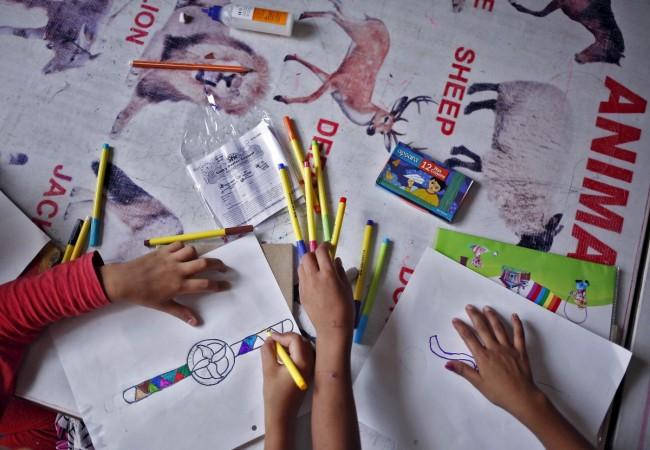
Rigging examinations is the new Indian fad. A spectacle of power, money and greed triumphing over meritocracy and equality. A good exam is the Holy Grail for millions of children who want to climb the social and economic ladder, but it often becomes a poisoned chalice. Whether it's at the school level, CBSE or civil services, cheating is a double whammy to the deprived.
But we are not talking about those who were cheated, but rather about those that unwittingly escaped cheating -- the 8.4 crore Indian children who are out of schools. A local report from Bangalore said on Tuesday that a whopping 17 lakh children from the 6-17 age group in the state are out of schools. Thank heavens, the crooked and the connected can never cheat them in an exam, for they never appear for one.
According to the 2011 census, 84 million Indian children don't go to school at all. (According to the last count by the ministry of human resource development, that number stands at 62 million). That's despite the Right to Education (RTE) Act that came into force in 2009 and the claim to universal school enrolment that most Indian states have made since then.
If 8.4 crore Indian children from the age group of 06 to 17 don't go to school, that's a bigger crime than the cheating in CBSE exams. Because 8.4 crore is about 20 percent of all children in the school-going age. If 20 percent of Indians are projected to grow up without significant education and skills, our concept of demographic dividend is dead.
The Annual Status of Education Report (ASER) survey of 2017 tore the mask off the toll claim of universal enrolment in India. Universal enrolment, combined with the RTE, was thought to be able to lift the country's downtrodden from the pits. But it seems this isn't happening.(Well, the much vaunted constitutional promise of universal adult franchise hasn't yet created a government of the people and for the people, either).
According to the survey, the near universal enrolment in Indian schools masks two crucial facts -- high dropout rates and crippling levels of absenteeism. A staggering 10 crore Indians are in the age group of 14-18. That's a phase when the students get ready to access higher education, join the job pool and contribute productively to the economy. But as per the 2016 ASER data, a huge chunk of them have abandoned schooling. As many as 13.5 percent of the students in the 15-16 age group have dropped out.
The RTE Act of 2009 was expected to erase the long-existing discrimination in education and lopsided opportunities. But this has made only a vestigial difference. As in the case of Karnataka, many states have made leaps and bounds in enrolment, but what happens next is often forgotten.
Surely a welfare state?
The RTE Act guarantees free and compulsory education for children up to age of 14. However, it appears that what's happening now is the free and compulsory enrolment, not education. And if one thought that the phenomenon of large-scale absenteeism was a problem in the BIMARU states of Bihar, Madhya Pradesh, Rajasthan and Uttar Pradesh, then we are wrong again. Southern states like Telangana and Andhra Pradesh too have high drop-out rates.
The first hurdle is that India doesn't take education to all its children, despite RTE and various schemes like midday meal. And second, the ratio of school drop-outs is skewed against girl students. Third, the drop-out rates in the SC/ST segments are far higher than in other segments in all Indian states. Ours is surely a welfare state? Or have we stood it on its head?
The Central government said on Monday that the number of people who filed Income Tax returns in the financial year 2017-18 rose by a crore to hit 6.84 crore. The Central Board of Direct Taxes (CBDT) also said the net direct tax collections rose more than 17 percent to touch 9.95 lakh crore.
Pretty good numbers for the government. But where's the assurance that at least a fraction of it is spent on India's children who are rotting on the streets and slums? The everyday stories of corruption, whether it's exam cheating or election rigging, only point to the depressing fact that the country has been snatched away from its downtrodden.
(The opinions expressed are the author's own)








